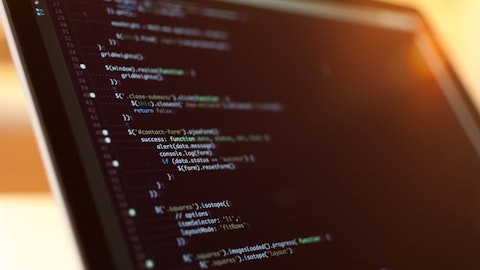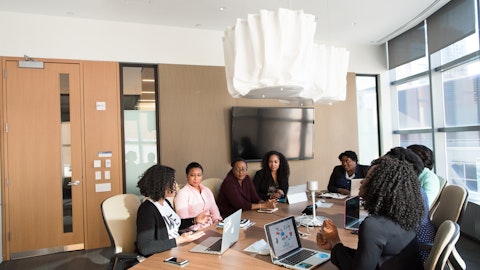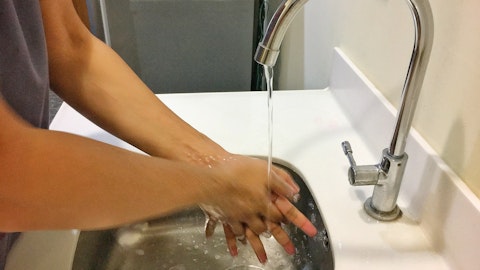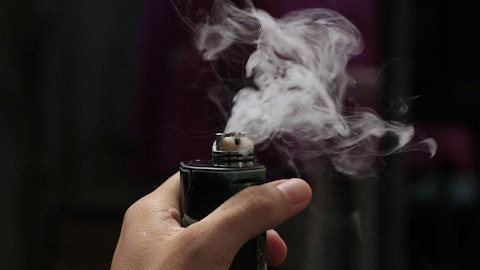Jacques Tortoroli: Well, clearly, I’ll let Jared touched on this a little bit. But clearly their interest in science and in terms of botanical wellness is interesting for us. Clearly, they have a strategy that they’ve articulated and I don’t want to speak for BAT. But clearly they’re interested in transforming to a better tomorrow as they say, is an integral part of why they’ve done this transaction and why they believe in Charlotte’s Web because of our IP, and because of, you know, the innovation that we can drive over time. Distribution, we’ll see. Over time again, as regulations open up in different jurisdictions around the world, I mean, they’re in over 140 countries, I think, if I remember correctly. So, we’ll see in terms of commercial opportunities, but right now, it’s really about — they felt that this was the best vehicle in which to invest in the company, and again, I don’t want to speak for them, but we’re excited that they’ve chosen us and we’re excited with the structure.
And we’re excited about the liquidity. We’re going to be really continue to be prudent stewards of our newfound cash and be selective in what we spend against and invest against to get this company back to growth as we go forward.
Operator: Your next question comes from Chris Damas of BCMI Research.
Chris Damas: Yeah, thanks for taking my question. Pablo’s question kind of covered most of it. But just for argument’s sake, the MLB can’t force a framework on these of rosters to use your product, right? I mean, he wants to use BioSteel, he can use it. So is this a symbolic deal? Or doesn’t have any kind of attachments to it?
Jacques Tortoroli: Well, no, I don’t understand the question. But the deal with MLB clearly is one where the teams and the team ownership are aware and informed obviously, the trainers, the physicians, players themselves. So, yeah, I mean, I think the idea is that, you will see Charlotte’s Web used by the teams and by players as we go forward, so it’s not symbolic. That being said, the team’s own the rights to their own stadiums. MLB owns the rights to the inventory in the jewel events. And that’s why we’re participating with MLB in the jewel events, and then activating locally around the games during the regular season in different cities that are of interest to us, but it’s not symbolic. I mean, they believe in what we said, which is the — you need the balance of wealth — health of mind to be in balance with the health physically.
And they’re committed to doing that. They’re committed to wellness options for their players that give them the highest degree of comfort you can that they won’t fail a drug test for banned substances.
Jared Stanley: Yeah. And I’d add a little bit color to that, while the teams can do these types of deals, it still has to go through MLB which chose the NSF certification process. So any products that those teams would be recommended would have to be an NSF product and we happen to have the exclusive official CBD of Major League Baseball. So it does certainly put us to a competitive advantage and certainly a strong head start.
Operator: Ladies and gentlemen, that is all the time we have for questions this morning. I would now like to turn the conference back to Cory Pala for any closing remarks.
Cory Pala: Well, thank you for joining us everybody. That was a very long call. Appreciate your time. We’ve had some tough innings in 2022 but we’ve also had some recent singles and we’ve loaded the bases. So we’re all hoping for — we’re looking to hit a home run in 2023-’04, and we’ve got our eye on the ball.
Operator: Ladies and gentlemen, this does conclude your conference call for this morning. We would like to thank you all for participating and ask that you please disconnect your lines.
Follow Charlotte's Web Holdings Inc. (OTC:CWBHF)
Follow Charlotte's Web Holdings Inc. (OTC:CWBHF)
Receive real-time insider trading and news alerts





